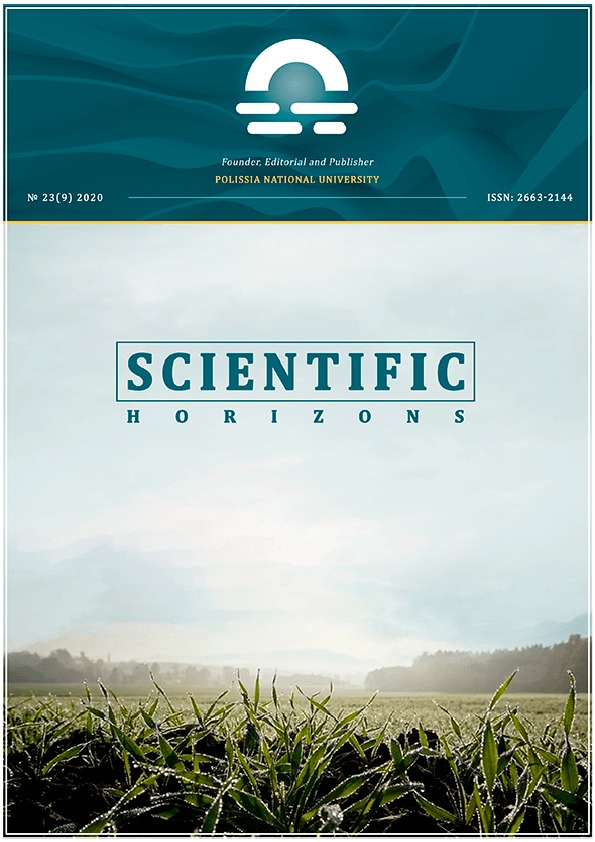id: 30691
Назва: Agroecological Bases of Sustainable Development Strategy for the Rural United Territorial Communities of the Western Polissya Region
Автори: Portukhay O., Lyko S., Mudrak O., Mudrak H., Lohvynenko I.
Ключові слова: agroecological indicators, anthropogenic impact, sustainable development, rural united territorial communities, Western Polissya region
Дата публікації: 2022-02-17 16:44:17
Останні зміни: 2022-02-17 16:44:17
Рік видання: 2021
Аннотація: The article considers the influence of agroecological indicators on the sustainable development of the rural united territorial communities of the Western Polissya region (Ukraine) on the basis of the current state analysis of crop production. The development of crop production was assessed taking into account the dynamics of the following indicators: sown areas of crops (thousand hectares), production volume (gross harvest) of crops (thousand centners), crop yields (thousand hectares-1), sown areas of crops in enterprises and households. In order to study the state of crop production and determine its role in the development of rural areas of the Western Polissya region the authors used their own field research, as well as data from the Main Departments of Statistics in Rivne and Volyn regions, the State Statistics Service of Ukraine, statistical collection "Crop Production of Ukraine" (2018). The following methods were applied throughout the research process: system analysis, comparison, graphical and statistical methods. The study revealed the formation of threats to the sustainable development of rural territorial communities in the region, as well as a number of opportunities. Agroecological threats to development include changes in the structure of sown areas of crops (reduction of areas and exclusion from crop rotation of crops typical for this region), excessive intensification of production, violation of standards for optimal crop rotation. Opportunities in the region include: increasing the area of agricultural land for organic products, a prerequisite for which are favorable natural and climatic conditions; supporting the development of individual farms, which largely meet the needs of the population in many goods and services; formation of cluster models of development of newly created communities, in particular of the grain cluster as 50.0% of lands (from the total sown area) are allocated for grain and legumes; develop and implement short-term and long-term local and regional programs for the revival of components of agro-landscapes, allocate "ecologically clean" raw material zones, carry out organic farming and obtain environmentally friendly agricultural products and raw materials based on agro-ecological zoning of the territory; to carry out denaturalization of disturbed lands, their conservation in order to create water protection meadows and forests and include them in the structural elements of the regional ecological network on the basis of agri-environmental approach, etc.
URI: http://repository.vsau.org/repository/getfile.php/30691.pdf
Тип виданя: Статті Scopus
Видавництво: Scitntific Horizons. 2021. № 24 (6). P. 50-61.
Розташовується в колекціях :
Ким внесений: Адміністратор
Файл : 30691.pdf Розмір : 1062723 байт Формат : Adobe PDF Доступ : Загально доступний

| |
|
|